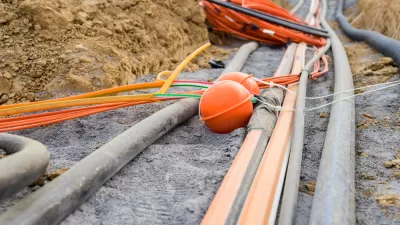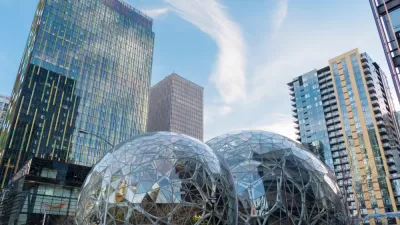Esther Dyson looks at the reasons why cities endure, why they are the right setting for massive social change, and how we can improve them through competition and intelligent design.
Due to the enduring and expanding importance of cities as social and spatial constructs, Dyson sets out to understand their possibilities and problems as businesses.
Dyson sees a key challenge in the fact that, "cities still often operate in a pre-market way. They mostly build their infrastructures themselves, and innovations do not spread easily, owing to a lack of incentives and, for that matter, much of a market other than when one city hires managers from another."
While at the same time, "cities are increasingly behaving like companies, becoming intimately involved in their citizens' quality of life, and, in an increasingly mobile world, competing for 'customers.'"
From this perspective Dyson sees the need for cities to continue to evolve and improve through competition, bringing in the work of Paul Romer, a former Stanford University economist best known for his Charter City initiative. According to Dyson, Romer "has a scheme for building new cities from scratch-and using competition to spread the benefits to old cities over time."
"The goal is not perfection in a single city, but more effective innovation and competition, so that the best cities prosper and other cities emulate them."
FULL STORY: Competition Can Make Cities Better

Maui's Vacation Rental Debate Turns Ugly
Verbal attacks, misinformation campaigns and fistfights plague a high-stakes debate to convert thousands of vacation rentals into long-term housing.

Planetizen Federal Action Tracker
A weekly monitor of how Trump’s orders and actions are impacting planners and planning in America.

San Francisco Suspends Traffic Calming Amidst Record Deaths
Citing “a challenging fiscal landscape,” the city will cease the program on the heels of 42 traffic deaths, including 24 pedestrians.

Defunct Pittsburgh Power Plant to Become Residential Tower
A decommissioned steam heat plant will be redeveloped into almost 100 affordable housing units.

Trump Prompts Restructuring of Transportation Research Board in “Unprecedented Overreach”
The TRB has eliminated more than half of its committees including those focused on climate, equity, and cities.

Amtrak Rolls Out New Orleans to Alabama “Mardi Gras” Train
The new service will operate morning and evening departures between Mobile and New Orleans.
Urban Design for Planners 1: Software Tools
This six-course series explores essential urban design concepts using open source software and equips planners with the tools they need to participate fully in the urban design process.
Planning for Universal Design
Learn the tools for implementing Universal Design in planning regulations.
Heyer Gruel & Associates PA
JM Goldson LLC
Custer County Colorado
City of Camden Redevelopment Agency
City of Astoria
Transportation Research & Education Center (TREC) at Portland State University
Jefferson Parish Government
Camden Redevelopment Agency
City of Claremont




























